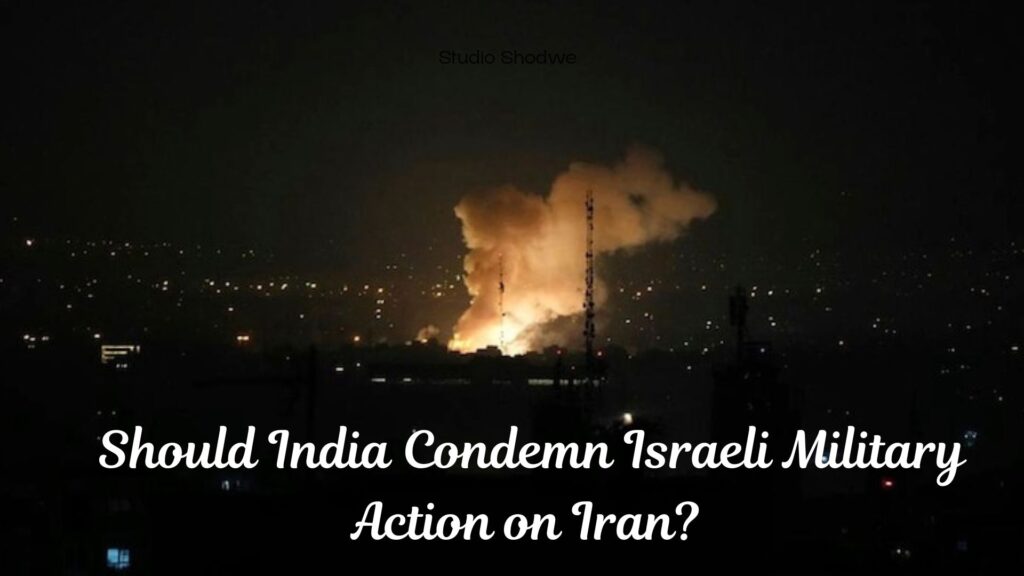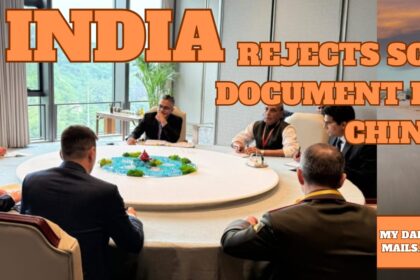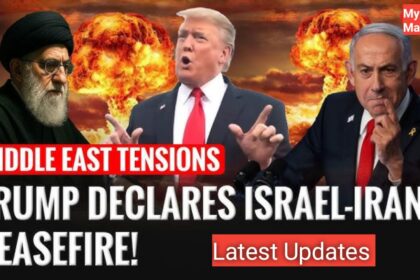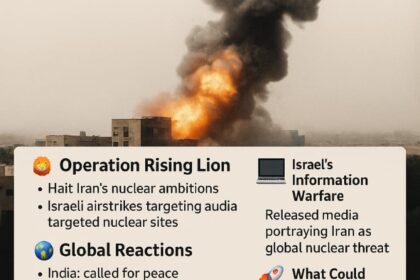
India is walking a tightrope in global geopolitics. As tensions between Israel and Iran escalate into a prolonged military conflict, India finds itself under pressure to take a stand. Recent diplomatic gestures, such as Iran opening its airspace for Indian evacuations, have ignited debates on India’s leadership role in the Global South.
Iran Opens Airspace for Indian Evacuation
In a significant humanitarian gesture, Iran allowed Indian aircraft to access its airspace to rescue Indian students stranded in the conflict zones. This operation, part of Operation Sindhu, wasn’t limited to Indian nationals. Discussions have emerged about evacuating citizens from neighboring countries like Nepal as well.
| Event | Details |
| Airspace Access by Iran | Facilitated evacuation of Indian citizens |
| Operation Sindhu Scope Expanded | Includes students from Nepal and others |
| Cooperation from Israel Expected | For evacuations from Israeli territory |
Despite ongoing bombings by Israel, Iran allowed this airspace access—an act that showcases a strategic balancing act.
Iran’s Diplomatic Message: “Pressure Israel”
Following the evacuation support, Iran’s deputy ambassador in India urged the Indian government to condemn Israeli military aggression. The Iranian diplomat emphasized that if India considers itself a leader of the Global South, it must take a public stance against Israel’s military actions.
Iran’s statement has triggered waves in the international community, with articles and op-eds debating India’s silence and neutrality. The Iranian envoy questioned:
“If India claims to lead the Global South, why is it silent on Israeli bombings?”
What is the Global South, and Why Does It Matter?
The Global South comprises developing countries from Asia, Africa, and Latin America. While there are no geographical borders defining it, the term refers to countries that are economically and politically less dominant compared to the Global North.
Interestingly, Australia and New Zealand, despite being in the Southern Hemisphere, are categorized under the Global North due to their economic development.
| Global South Countries | Key Religions/Standpoints |
| Pakistan, Bangladesh, Iran | Predominantly Islamic, critical of Israel |
| South Africa | Christian-majority, yet opposes Israel |
| Saudi Arabia, Egypt | Islamic and aligned with OIC positions |
Iran’s argument hinges on the idea that a leader of the Global South must reflect the collective sentiment of these nations—many of which strongly oppose Israeli military actions.
India’s Diplomatic Dilemma: Torn Between Two Allies
India maintains strong bilateral ties with both Iran and Israel. On one hand, Iran supports India’s evacuation efforts. On the other, Israel has historically backed India in strategic forums. Recently, Israel’s ambassador praised India for not supporting a condemnation statement at the Shanghai Cooperation Organization (SCO) summit.
| Stakeholder | Position on Israel-Iran Conflict |
| Iran | Urges India to denounce Israeli aggression |
| Israel | Appreciates India’s silence at the SCO forum |
| Sonia Gandhi (Congress) | Criticizes India’s inaction and supports Iran’s stance |
The Indian government, for now, maintains a neutral tone, stating it values relations with both countries.
Global South vs. IMEC: Conflicting Interests
India’s ambitions to lead the Global South are evident in various summits hosted by Prime Minister Narendra Modi, where he addressed and engaged with developing nations. However, its involvement in the India-Middle East-Europe Economic Corridor (IMEC) presents a challenge.
IMEC is a trade corridor that runs through Israel, making it a strategic partner for India’s economic future. Condemning Israel may jeopardize this initiative, especially if regime changes occur in Iran.
China’s Role: Open Condemnation of Israel
China, India’s primary rival in the Global South leadership narrative, has openly condemned Israeli actions. This contrast strengthens Iran’s argument: Why is India silent while China acts?
Ongoing Conflict and Mysterious Earthquakes in Iran
The conflict has lasted over a week, with reports of heavy Israeli bombings. Intriguingly, Iran has recently experienced a series of tremors. Some experts speculate that the attacks might be targeting underground nuclear facilities, suggesting a potential link between military action and seismic activity.
| Recent Developments in Iran | Possible Implication |
| Multiple earthquakes reported | Possibly linked to Israeli bombings |
| Speculation of nuclear testing or attack | Indicates deeper geopolitical complications |
Operation Sindhu: Israel’s Role
Operation Sindhu is not limited to Iranian evacuations. It includes Indian citizens in Israel as well. Hence, India is receiving cooperation from both sides, complicating the situation further.
Interestingly, Israel hasn’t demanded India to condemn Iran, but Iran clearly expects India to denounce Israeli aggression to maintain its Global South leadership ambitions.
The Core Question: Should India Condemn Israel?
India’s foreign policy is currently walking a diplomatic tightrope. On one side lies its aspiration to lead the Global South, and on the other, its economic and strategic ties with Israel and the IMEC project.
U.S. President Donald Trump and Israeli PM Netanyahu have also drawn criticism, especially from leaders like Sonia Gandhi, who publicly asked:
“Why is India silent while Israel continues bombings?”
This raises a critical foreign policy dilemma: Can India balance its neutral stance while claiming Global South leadership?
FAQs
Q1. Why did Iran open its airspace for India?
Iran allowed Indian aircraft to use its airspace to evacuate citizens, despite ongoing bombings by Israel. This was a humanitarian gesture.
Q2. What is Operation Sindhu?
Operation Sindhu is India’s evacuation mission for citizens trapped in conflict zones like Iran and Israel.
Q3. What is the Global South?
The Global South includes developing countries in Asia, Africa, and Latin America, which often share geopolitical and economic interests.
Q4. Why is Iran pressuring India to condemn Israel?
Iran believes that if India wants to be the leader of the Global South, it must take a moral stand against military aggression, particularly from Israel.
Q5. Has India officially condemned Israel?
No. India has maintained neutrality and skipped condemnation of Israel at forums like the SCO.
Final Thoughts
India faces a tough choice. If it continues its neutral stance, it may protect economic and diplomatic interests with Israel. But if it wants to become the undisputed leader of the Global South, it must align with the collective voice of developing nations—many of whom expect a firm stance against Israeli military aggression.
What do you think? Should India condemn Israeli military action against Iran? Vote ‘Yes’ or ‘No’ in the comments below.






